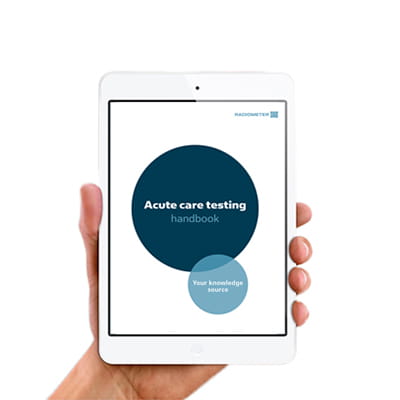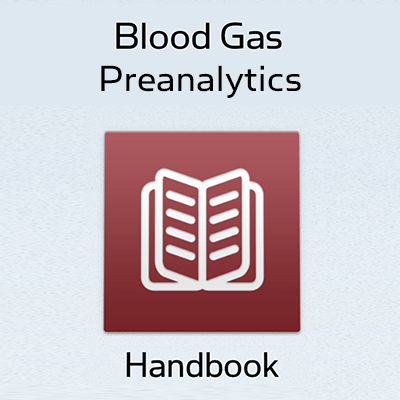Printed from acutecaretesting.org
Journal Scan
December 2018
An assessment of variability in plasma potassium measurement
Summarized from Freidman P, Scott C, Bailey K et al. Errors of classification with potassium blood testing: The variability and repeatability of critical clinical tests. Mayo Clinic Proceedings 2018; 93: 566-72. Accompanying editorial article: Dylewski J, Linas S. Variability of potassium blood testing: Imprecise nature of blood testing or normal physiologic changes. Mayo Clinic Proceedings 2018; 93: 551-64.
Data collected during a multicenter phase-3 clinical trial of a novel drug treatment for hyperkalemia (raised blood potassium) has provided a serendipitous opportunity to examine the variability of plasma potassium measurement. The trial required recruitment of patients with plasma potassium in the hyperkalemic range of 5.0-6.5 mmol/L. Recruitment to the trial involved measuring plasma potassium at three time points after an overnight fast (0 minutes and then 30 minutes and 60 minutes later).
Measurements were made on whole-blood samples using a well-validated point-of-care analyzer. The mean of the three potassium measurements was used to determine eligibility for entry into the trial. The presumed reason for this strategy (not explicitly stated in the published trial report) is that determination of the mean of three potassium measurements is more reliable than a single measurement in assessment of patient potassium status, an implied acknowledgment of variability of potassium measurement.
During 2012/13, a total of 1433 patients at 65 sites across the US, Australia and South Africa were screened in this way, and 753 were found to have a mean potassium value in the range of 5.0-6.5 mmol/L, allowing entry to the trial. Results of this drug trial were subsequently published in 2015.
More recently, investigators retrieved plasma potassium measurements generated during this screening process for 1170 of the original 1433 patients, to quantify the variability of potassium measurement by comparing plasma potassium concentration at the three time points: baseline (T1); 30 minutes (T2); and 60 minutes (T3). Statistical analysis of these comparisons is recently published.
Absolute differences between pairs from different time points ranged from 0 mmol/L to 2.5 mmol/L, with a mean difference of 0.26 mmol/L ± 0.25.
Lin concordance correlation coefficient (CCC) for agreement between all pairs at different time points revealed: CCC 0.78 (CI 0.76-0.8) for T1 v T2; 0.75 (CI 0.73-0.78) for T3 v T3; and 0.73 (CI 0.70-0.76) for T3 v T1.
Bland-Altman analysis for the three time points comparison revealed 95 % limits of agreement (LOA) were –0.7 to +0.7 mmol/L for T1 v T2; –0.7 to +0.8 mmol/L for T2 v T3; and finally, –0.8 to + 0.8 mmol/L for T1 v T3.
Statistical analysis of variance revealed it was non- homogeneous, suggesting more than one cause of the variance in potassium measurements. Further analysis revealed paired test differences exceeded 0.5 mmol/L, 12 % of the time.
The authors observe that 686 patients had a mean (of three) potassium values >5.0 mmol/L, indicating “true” hyperkalemia for the purposes of the trial; of these 302 (44 %) had at least one result within the normal range (i.e. <5.0mmol/L), indicating pseudonormokalemia. Of 484 whose mean (of three) potassium results were within the normal range indicating “true” normokalemia, 146 (30.2 %) had at least one elevated result, indicating pseudohyperkalemia.
In discussion, authors of this study and the authors of an accompanying editorial provide an overview of the many factors (biological, preanalytical and analytical) that may contribute to the variation in potassium measurement revealed by this study.
Measurements were made on whole-blood samples using a well-validated point-of-care analyzer. The mean of the three potassium measurements was used to determine eligibility for entry into the trial. The presumed reason for this strategy (not explicitly stated in the published trial report) is that determination of the mean of three potassium measurements is more reliable than a single measurement in assessment of patient potassium status, an implied acknowledgment of variability of potassium measurement.
During 2012/13, a total of 1433 patients at 65 sites across the US, Australia and South Africa were screened in this way, and 753 were found to have a mean potassium value in the range of 5.0-6.5 mmol/L, allowing entry to the trial. Results of this drug trial were subsequently published in 2015.
More recently, investigators retrieved plasma potassium measurements generated during this screening process for 1170 of the original 1433 patients, to quantify the variability of potassium measurement by comparing plasma potassium concentration at the three time points: baseline (T1); 30 minutes (T2); and 60 minutes (T3). Statistical analysis of these comparisons is recently published.
Absolute differences between pairs from different time points ranged from 0 mmol/L to 2.5 mmol/L, with a mean difference of 0.26 mmol/L ± 0.25.
Lin concordance correlation coefficient (CCC) for agreement between all pairs at different time points revealed: CCC 0.78 (CI 0.76-0.8) for T1 v T2; 0.75 (CI 0.73-0.78) for T3 v T3; and 0.73 (CI 0.70-0.76) for T3 v T1.
Bland-Altman analysis for the three time points comparison revealed 95 % limits of agreement (LOA) were –0.7 to +0.7 mmol/L for T1 v T2; –0.7 to +0.8 mmol/L for T2 v T3; and finally, –0.8 to + 0.8 mmol/L for T1 v T3.
Statistical analysis of variance revealed it was non- homogeneous, suggesting more than one cause of the variance in potassium measurements. Further analysis revealed paired test differences exceeded 0.5 mmol/L, 12 % of the time.
The authors observe that 686 patients had a mean (of three) potassium values >5.0 mmol/L, indicating “true” hyperkalemia for the purposes of the trial; of these 302 (44 %) had at least one result within the normal range (i.e. <5.0mmol/L), indicating pseudonormokalemia. Of 484 whose mean (of three) potassium results were within the normal range indicating “true” normokalemia, 146 (30.2 %) had at least one elevated result, indicating pseudohyperkalemia.
In discussion, authors of this study and the authors of an accompanying editorial provide an overview of the many factors (biological, preanalytical and analytical) that may contribute to the variation in potassium measurement revealed by this study.
Disclaimer
May contain information that is not supported by performance and intended use claims of Radiometer's products. See also Legal info.
Acute care testing handbook
Get the acute care testing handbook
Your practical guide to critical parameters in acute care testing.
Download now







